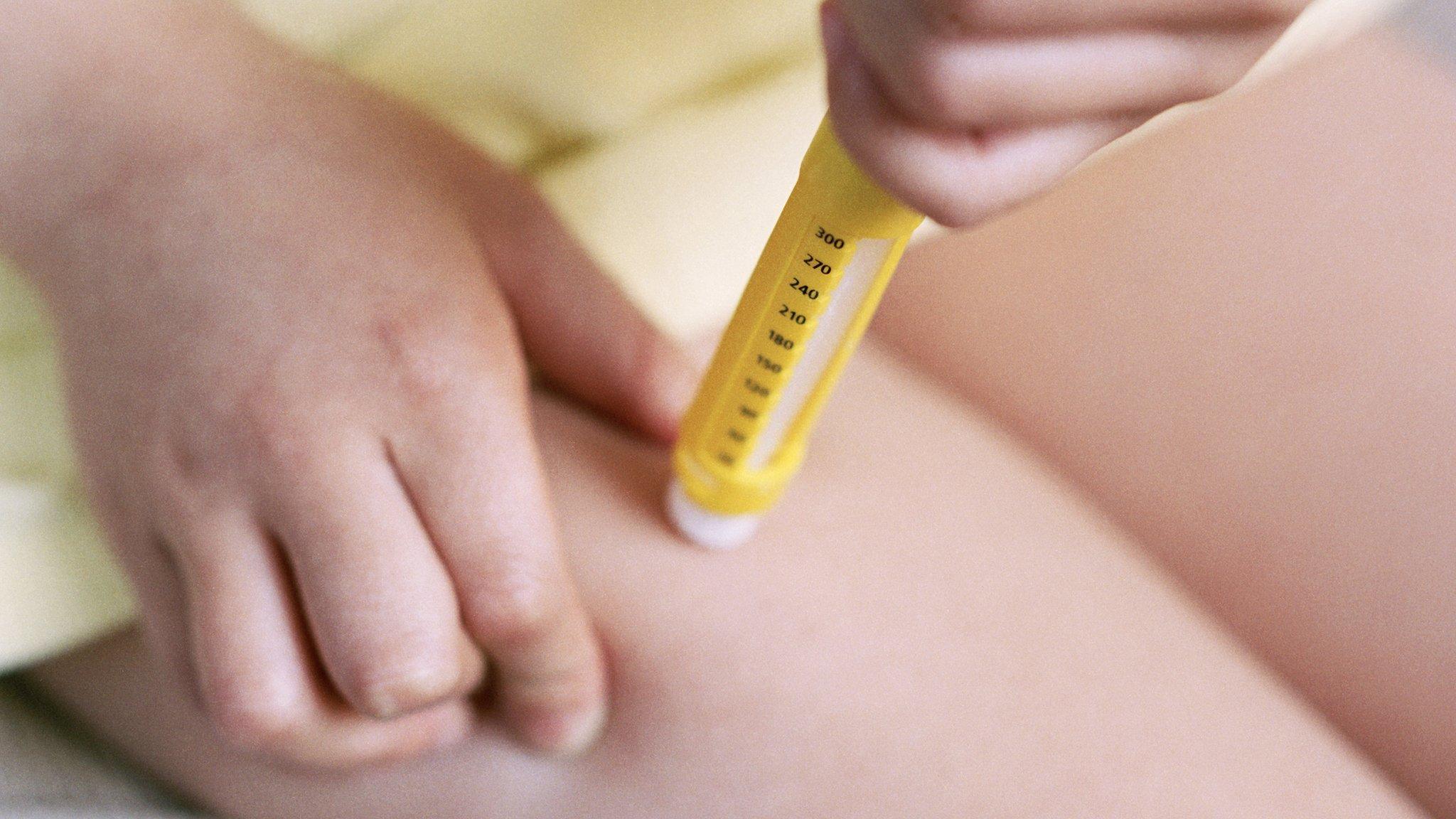Diabetes: Children 'not getting recommended checks'
- Published
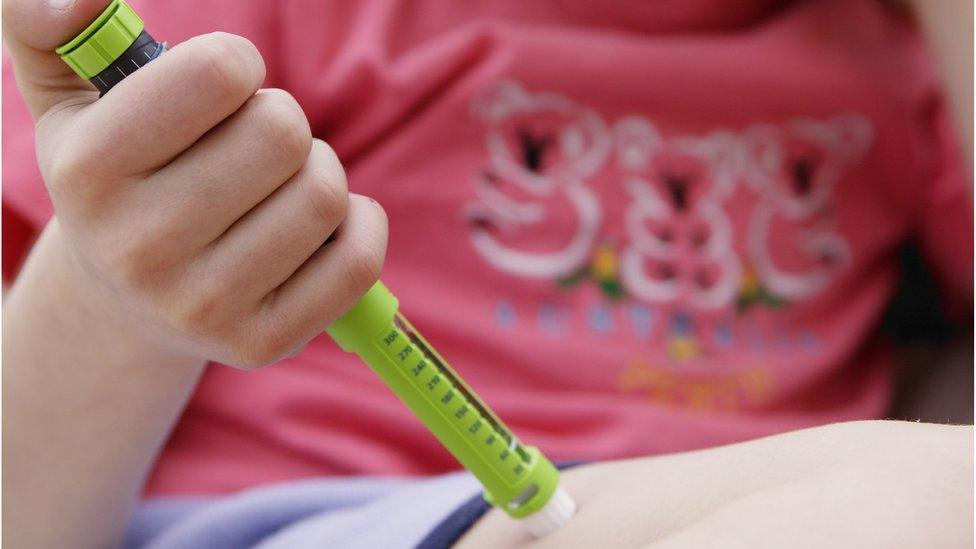
Almost 75% of older children in England and Wales with diabetes are not getting key health checks, a study suggests.
Data from 27,682 children and young people showed 25.4% of those aged 12 and older had all seven recommended annual checks, such as eye screenings.
Diabetes UK said missed health checks for children were "very worrying".
However, the Royal College of Paediatrics and Child Health, which carried out the audit, said the overall picture showed care was improving.
Health officials recommend all children with diabetes should be assessed to ensure they are managing their condition properly.
Guidelines from NICE (the National Institute for Health and Care Excellence) state all children with diabetes should be encouraged to have their blood sugar levels checked four times a year in clinic and those over the age of 12 should also have six other health checks.
These include measurement of growth, blood pressure, kidney function and cholesterol, as well as eye screening and a foot examination.
Future complications
The report, external looked at data from children and young people with diabetes up to the age of 24 who attended paediatric diabetes units in England and Wales between April 2014 and the end of March 2015.
More than 70% had type 1 diabetes, which requires daily insulin injections.
Experts say the average blood glucose level (HbA1C) - a marker that measures overall diabetes control - in children with diabetes fell for the fifth consecutive year.
The report found that those achieving "excellent diabetes control" - equivalent to a blood glucose level of less than 7.5% - rose from 15.8% in 2012-13 to 23.5% in 2014-15.
It also found 98.7% of all children and young people had received the blood glucose checks.
The audit showed 23% were now reducing their risk of future complications from the disease.
However, the most commonly missed checks among children aged 12 and older included foot examinations, eye screenings and cholesterol testing.
The tests are designed to spot early signs of diabetes causing harm to organs. And experts say some of these complications - which can include blindness and kidney damage - could be less severe if spotted and treated at an early stage.
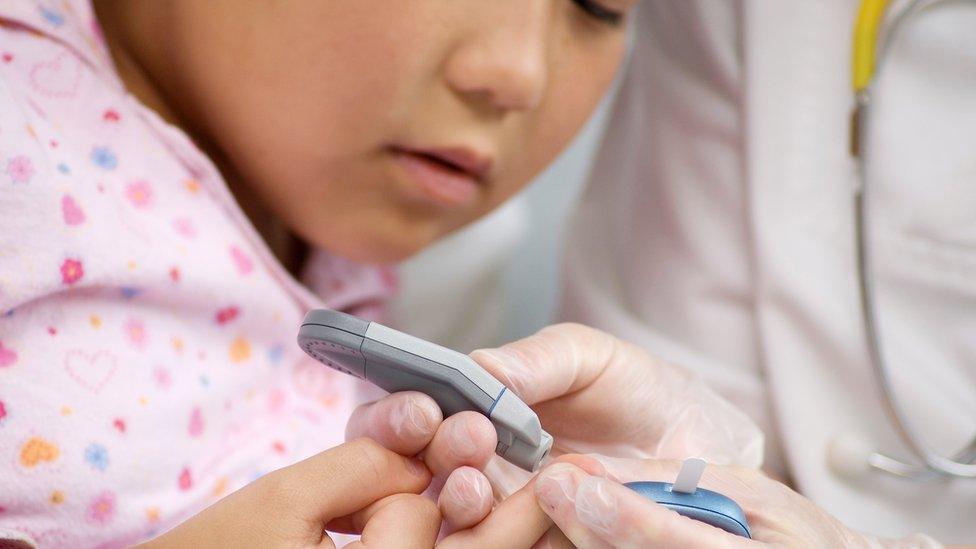
Dr Justin Warner, consultant in paediatric endocrinology and diabetes at the University Hospital of Wales and clinical lead at the Royal College of Paediatrics and Child Health, said it was "completely unacceptable" that some of these checks were being missed or not recorded.
He said some service providers might not be writing the information down because of a lack of time and resources.
He said health staff should "strive further" to ensure all checks take place and are recorded, and commissioners should provide adequate resources.
Dr Warner also said children and young people living in the most deprived areas were found to have worse blood glucose test results than those living in more affluent areas.

'Huge responsibility'
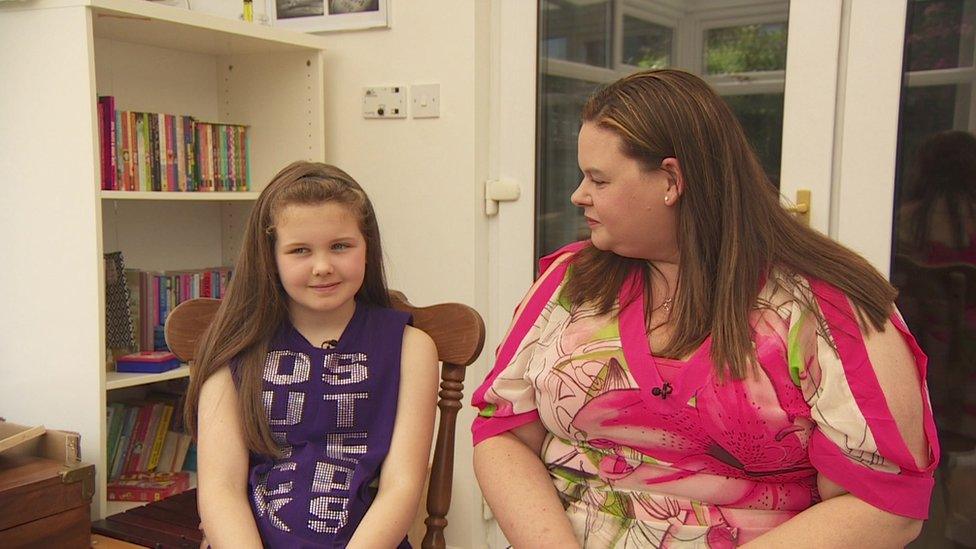
Amber from Middlewich in Cheshire, was diagnosed with type 1 diabetes at the age of six. Her mother, Helen Clayton, said it was "petrifying" at first and the right support was crucial.
Amber has regular checks at hospital and access to a 24-hour nurse helpline.
Her mother said: "You are told there is a part of your child's body that isn't working any more and you have to do the job of that part of the body. It is a huge responsibility as if not managed properly it can be life-threatening.
"But with time you learn there is a lot of help and support out there. It would be very difficult without the support network and checks - it gives you confidence."

Bridget Turner, director of policy and care improvement at Diabetes UK, said: "There remains considerable variation in the level of care provided.
"This is very worrying because if children and young people are not supported to manage their diabetes well in early life, they are more likely to be at risk of debilitating and life-threatening complications in adult life such as amputations, blindness and stroke."
Prof Jonathan Valabhji, national clinical director for obesity and diabetes at NHS England, said improvements in glucose control described in the report were outstanding.
He said NHS England was "working closely" with clinical commissioning groups to improve the provision of "effective integrated diabetes services".
A Welsh Government spokesperson said it was "encouraging" to see improvements in paediatric diabetes care in Wales.
"Our newly-established children and young people's diabetes network in Wales is working closely with both the diabetes implementation group and local health boards to continue this and to tackle areas where improvements can be made."

Diabetes
Type 1 - where the pancreas does not produce any insulin
Type 2 - where the pancreas does not produce enough insulin - or the body's cells do not react to insulin
Type 1 diabetes can develop at any age, but usually appears before the age of 40, particularly in childhood.
About 10% of all diabetes is type 1, but it is the most common type of childhood diabetes.
Type 2 diabetes is largely caused by poor lifestyle. About 90% of adults with diabetes have type 2, and it tends to develop later in life than type 1.
Source: NHS Choices
- Published24 April 2016
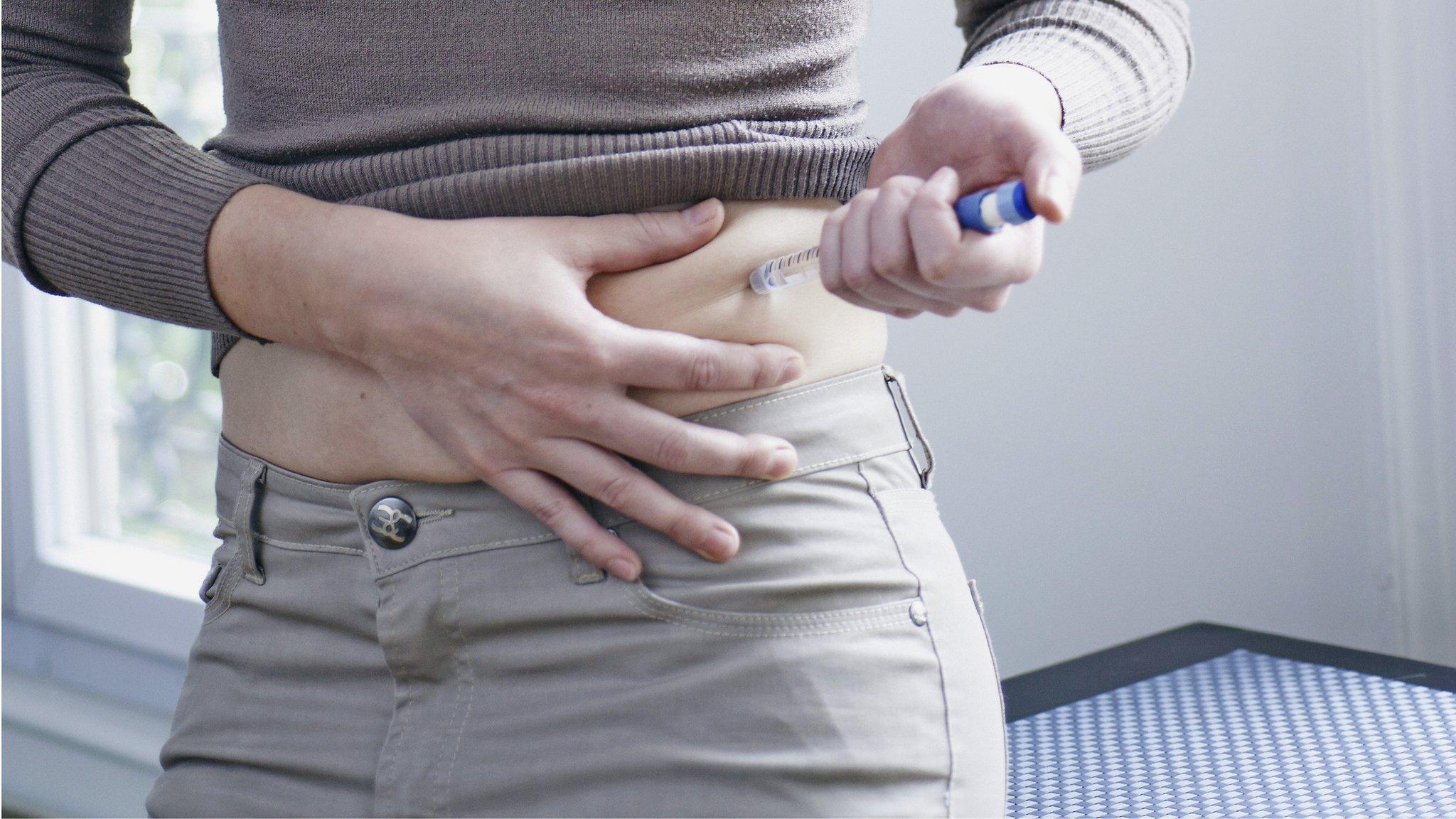
- Published20 April 2016
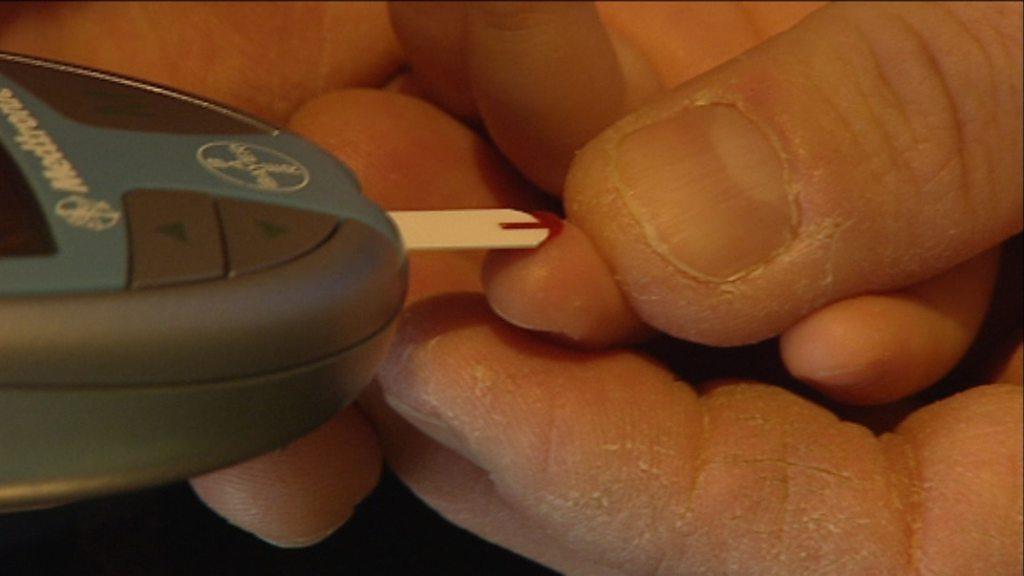
- Published24 March 2016

- Published2 January 2013
